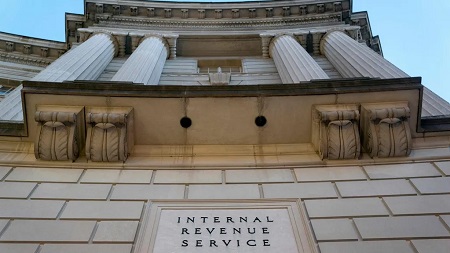The Internal Revenue Service (IRS) in the United States has issued demands for back taxes from Alameda Research, FTX, and their affiliates, including West Realm Shires, Blockfolio, and Ledger Holdings. The total amount of the demands is a staggering $44 billion, spread across 45 separate claims.
The IRS released a series of documents on April 27 and 28, 2023, outlining these claims against the exchange and its affiliates. One notable claim is that Alameda Research owes a substantial $20.4 billion in federal payroll taxes and unpaid partnership taxes.
The insane Alameda Research LLC tax bill circulating is real. The major balances don’t have detail, but in part it appears the IRS went back and reclassified ALL employees from contractors to employees and hit them for unpaid employer-side employment taxes. pic.twitter.com/GuY6czcgMn
— Meat (????,????) (@MeatTC_) May 10, 2023
According to bankruptcy records, the $20.4 billion claim against Alameda Research LLC primarily consists of around $20 billion in partnership taxes. The remaining portion of the claim includes millions in income taxes and payroll taxes that were withheld.
This development has generated significant interest and sparked discussions within the online community. Users on Twitter have offered insights into the situation. @Meat, for instance, provided a breakdown of the tax bill, suggesting that the IRS reclassified all personnel from contractors to employees and imposed outstanding employer-side employment taxes on them.
Also given these numbers I have to assume that they were assessed on the basis that all employees were US based (I cannot imagine they collected W-9s) and none of them paid employment taxes on their income. The BK estate can reduce the bill related to those amounts.
— Meat (????,????) (@MeatTC_) May 10, 2023
@Meat pointed out that these back taxes are levied at the partnership level because Alameda Research LLC is likely treated as a partnership for tax purposes. Depending on the provisions in the partnership agreement, the assessed taxes may be allocated to the partners.
Another Twitter user, @Wassielawyer, discussed the implications for FTX’s creditors. They explained that the responsibility for paying the Alameda tax bill lies with Alameda’s management. However, since Alameda borrowed billions of dollars from FTX, FTX must now recover funds as a creditor of Alameda to settle its own debts. To address this, Alameda is selling its assets, including the debt owed to FTX, in order to repay its debts. However, the emergence of a significant new creditor in the form of the tax claim complicates matters for FTX’s creditors.
5/ Yes – under the US bankruptcy code, Uncle Sam has priority over unsecured creditors, which means this massive 20bn tax bill needs to be paid off before any money can even flow from Alameda to FTX Intl.
In other words – we are pretty fucking boned.
— wassielawyer (哇西律师) (@wassielawyer) May 10, 2023
@Wassielawyer mentioned a potential saving grace called the “trust argument.” If this argument holds up in court, it would mean that the assets transferred by clients into FTX were held in trust. In such a scenario, clients could trace their proprietary interest in Alameda’s assets, and the funds provided to Alameda would be seen as a transfer of trust assets rather than a loan.
The tax authority has given these claims administrative priority, meaning they take precedence over the money owed to the exchange’s creditors. As a result, the final implications of this situation will be determined through the ongoing dispute surrounding the outstanding debts owed by FTX.
If you want to read more news articles like this, visit DeFi Planet and follow us on Twitter, LinkedIn, Facebook, Instagram, and CoinMarketCap Community.
“Take control of your crypto portfolio with MARKETS PRO, DeFi Planet’s suite of analytics tools.”





















